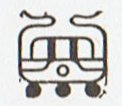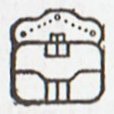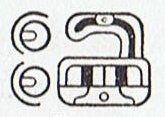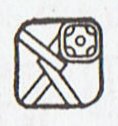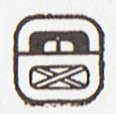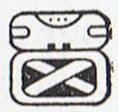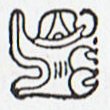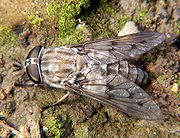|
TRANSLATIONS
The Maya seem to have imagined the first part of the year as if sun light was 'barred':
As I have interpreted it there are 60 days, until the arrival of Zotz, before sun arrives 'in person'. Before that sun has been 'born' but has not yet arrived in his 'canoe'. Not until spring equinox can we see him for real: 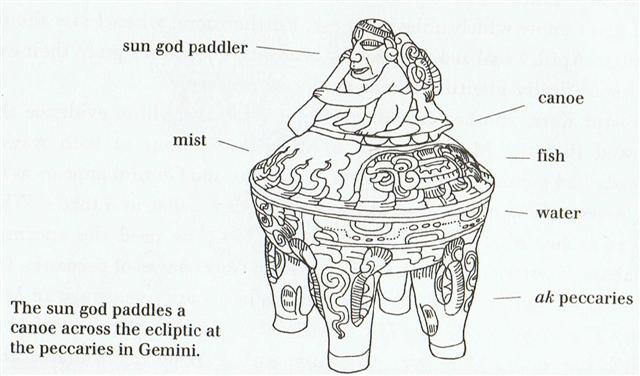 During Pop, Uo, and Zip it is possible to see him moving closer, though, watching the early morning sky and his gradual approach as measured against the sticks set up at the horizon in the east. At the other end of the year he will disappear again, at Hua Reva:
Reva indicates the upper regions:
I imagine there could be a connection between reva and for instance 'leave', 'lift up', 'levitate' etc, and decide to have a look at what Fornander has to say in the matter: "LEWA, s. Haw., the upper air, region of clouds; v. to swing, float in the air, move back and forth; hoo-lewa, to vibrate, float in the air, carry between two persons, as a corpse, a funeral. Tah., rewa, the firmanent, an abyss; rewa-rewa, to fly about, as a flag. Mangr., rewa, the overhanging firmanent, a tent, a flag. N. Zeal., rewa, the eyelid. Marqu., ewa, to suspend; s. the middle. Sam., leva (of time), long since; v. be protracted. Fiji., rewa, high, height; vaka-rewa, to lift up, to hoist, as a sail. Malg., lifa, v. to fan oneself, s. flight; rafraf, a fan. Goth., luftus, the air. Sax., lyfti, air, arch, vault. O. Engl., lift, air. Lat., limbus (?), fringe, flounce. Sanskr., dev, div, primarily 'jacere, jaculare', according to A. Pictet (Orig. Ind.-Eur., ii. 466), subsequently 'to play at dice', play generally. The permutation of d and l may be observed in the Latin levir, brother-in-law (the husband's younger brother) = Sanskr. devŗi, devara, id. If dev or div has derived the sense of 'throwing dice' from an older sense 'jacere, jaculare', to throw, to hurl, that sense may be a derivative from a still older one, 'to lift up, swing about, be suspended' = the Polynesian lewa, rewa, 'to be suspended, to vibrate'. And thus we can also understand the origin of the Goth. luftus, the Sax. lyfte, the O. Norse loft, Swed. lowera, lofwa, Engl. luff." (Fornander) The horse-fly (takaure) always comes when you come up from the sea, having taken a bath in high summer. |
